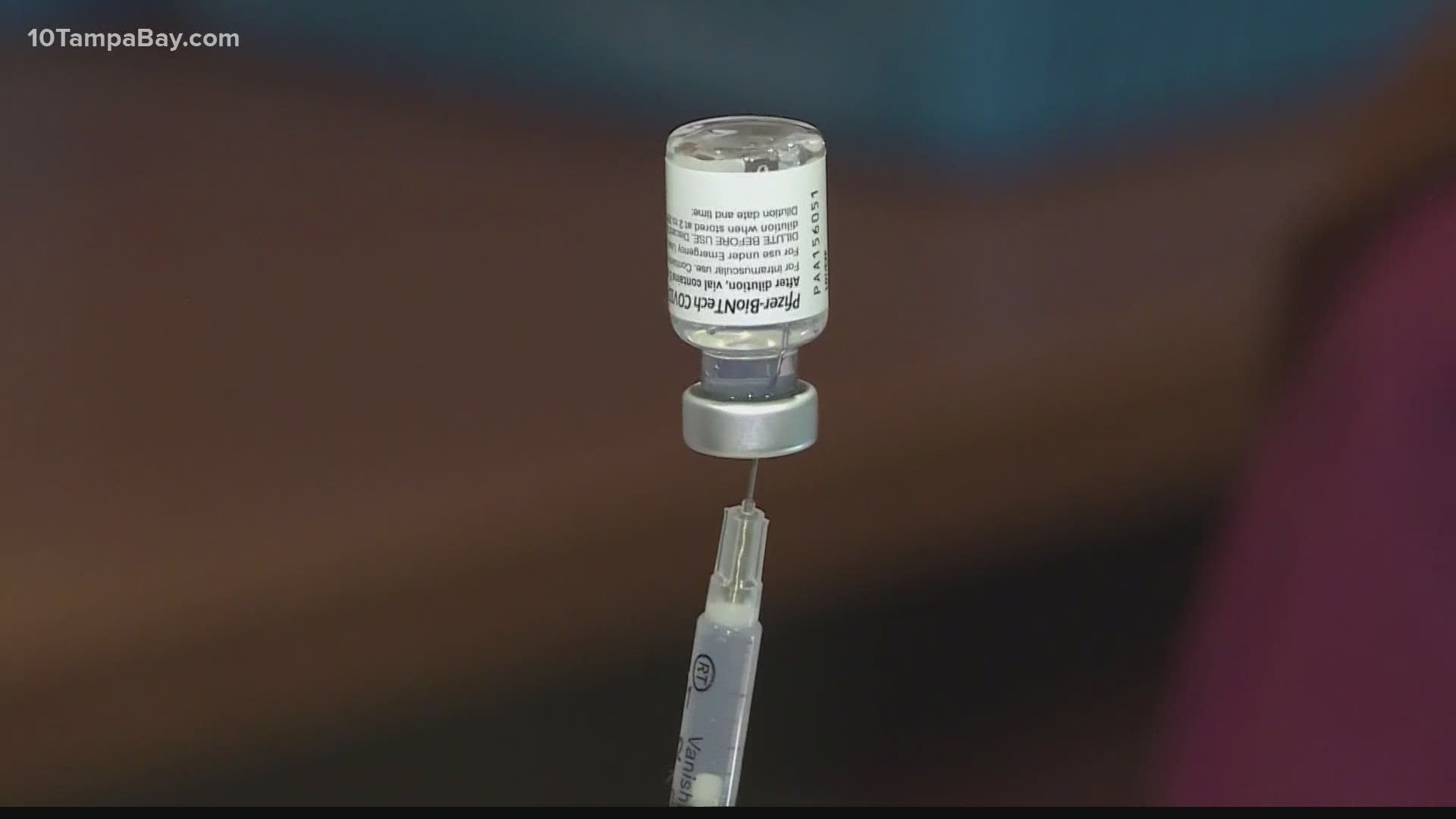TAMPA, Fla. — Scientists say COVID-19 doesn't discriminate, but the color of your skin could determine how you're affected.
"COVID-19 has showcased what we already knew about disparities, health disparities," Dr. Miguel Reina with the University of South Florida said.
He specializes in Global Disease research and continues tracking COVID-19's impact on Latinx communities.
"Here in Florida, out of all the people who tested positive for COVID-19, close to 30 percent were Hispanics. That's higher than the Hispanic population in Florida, which sits around 26 percent, according to the last Census," Reina said.
Data shows Latinos in the US are 3 times as likely to test positive, 5 times more likely to be hospitalized, and 2 times more likely to die from the virus than other groups.
Doctors say these are real issues and a language barrier is a big part of the reason why Latinos are disproportionately affected by the virus. The correct information is not making its way to the community.
"We conducted our community diagnosis in December and it was identified that participants didn't understand how COVID was being transmitted. So after six months into the pandemic, and very strict lockdowns, people just didn't understand how to prevent transmission," Dr. Arlene Calvo said.
The USF doctor based in Panama says the study was done there, but data from the US shows the same results. She says the root of the problem is misinformation being shared in the community.
"We were very surprised! I was not expecting that at all," Calvo said.
That's why a group of six USF doctors are working to get the right information to families in their own language. They'll have virtual conversations with the community in Spanish. The first will take a look at COVID vaccines
"If people do not have access to services and information in their own language, in the language they're comfortable with, they are less likely to follow doctor's orders and less likely to adhere to treatment. It's important that the community feels that they are heard and they can communicate in the language that they are more comfortable doing so. That's what we're trying to do," Dr. Reina said.
The first of a series of conversations in Spanish will happen tomorrow at 6:30 p.m. Doctors will take any questions you have about COVID-19. You can join via Zoom or on Facebook Live.
- Vaccine eligibility age changes Monday to 60 and older in Florida
- $1,400 stimulus checks: Who qualifies, how to track, when money may arrive
- 63rd annual Grammy Awards: Full list of winners, nominees
- Gender wage gap shrank because of COVID-19, but that's not a good thing
- After a notable first week, jury selection resumes in the trial of Derek Chauvin
- As we move towards 'normal,' here's why we hug, shake hands
►Breaking news and weather alerts: Get the free 10 Tampa Bay app
►Stay In the Know! Sign up now for the Brightside Blend Newsletter

